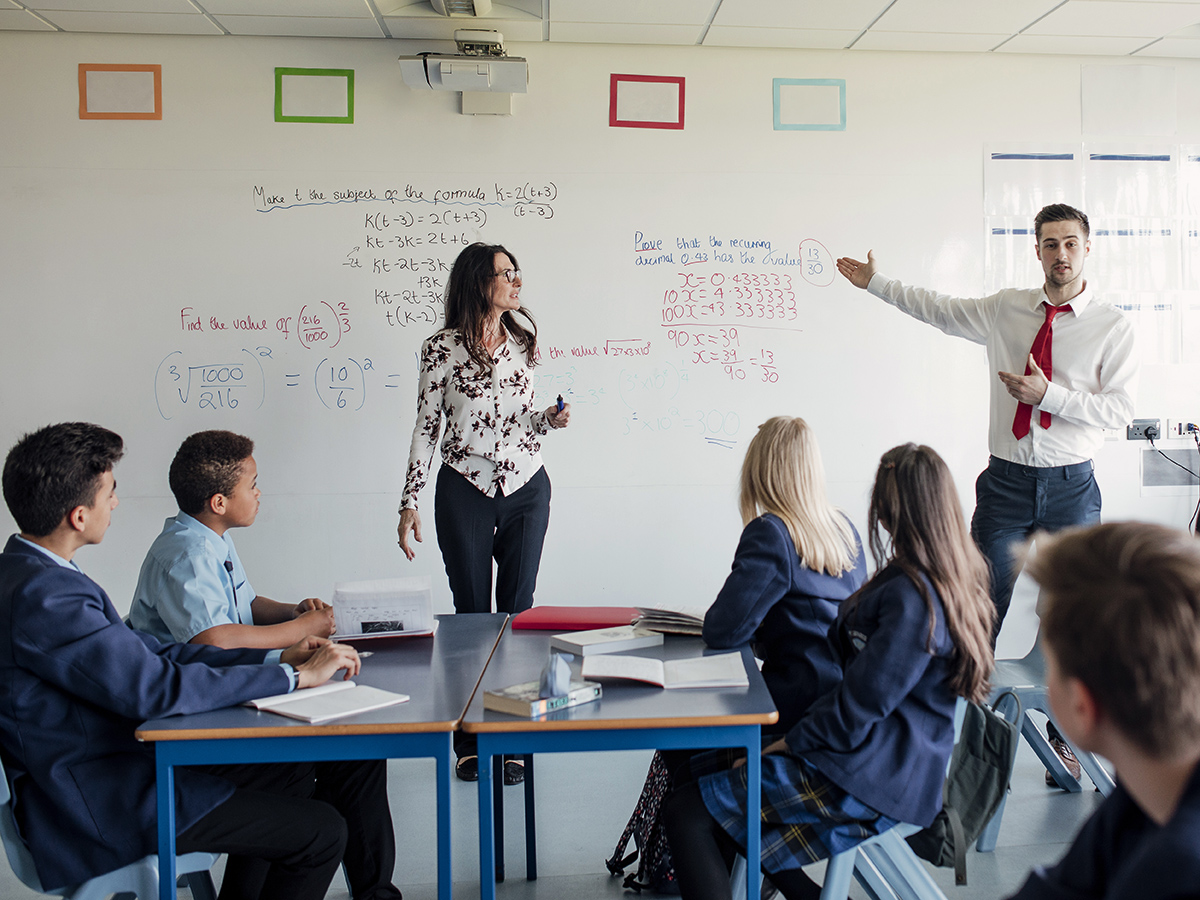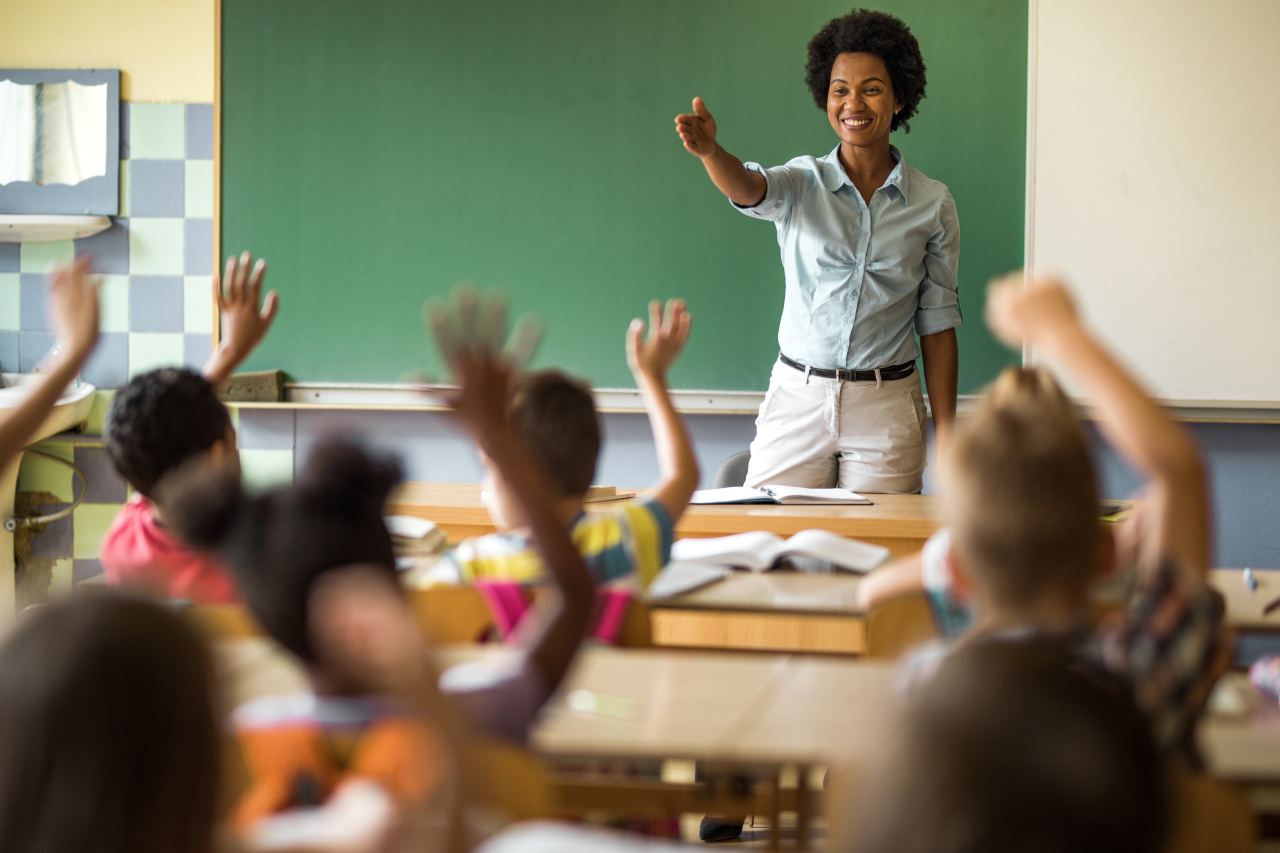Find the Best Primary Science Tuition Singapore for Enhanced Learning
Find the Best Primary Science Tuition Singapore for Enhanced Learning
Blog Article
Exploring the Different Training Strategies in Primary Science Education And Learning Today
The landscape of main scientific research education and learning is progressing, with various mentor methods gaining importance in modern class. Inquiry-based knowing, hands-on experiments, and the integration of innovation are redefining how educators involve young minds. In addition, collective approaches and distinguished instruction are being employed to accommodate the varied needs of pupils, improving both interaction and understanding. As we take a look at these approaches, inquiries emerge regarding their performance and the implications for future educational practices. What might these changes in method mean for the next generation of students?
Inquiry-Based Learning
Inquiry-Based Knowing (IBL) is a pedagogical strategy that encourages pupils to discover scientific ideas via doubting, examination, and hands-on testing. This method stresses the role of trainees as active participants in their knowing, promoting vital reasoning and analytic skills. By engaging with real-world inquiries, students become motivated and curious, which enhances their understanding of clinical principles.
In IBL, teachers function as facilitators, directing students as they navigate their inquiries instead of supplying information straight. This student-centered technique permits differentiation, accommodating different learning rates and styles. Trainees create skills in creating hypotheses, developing experiments, and assessing information, which are critical for clinical proficiency.
Additionally, IBL cultivates partnership amongst pupils, encouraging them to share concepts and searchings for. This cumulative questions advertises social abilities and a feeling of area within the class. The procedure of questions motivates strength, as trainees discover to embrace failure as a stepping stone toward understanding.
Hands-On Experiments
Hands-on experiments are an important part of reliable scientific research education, enhancing the principles of inquiry-based understanding. These experiments permit students to involve straight with clinical ideas, fostering a deeper understanding through experiential learning. By manipulating products and observing results, young students can comprehend abstract concepts in concrete ways.
Such tasks advertise vital reasoning and analytical abilities, as trainees hypothesize results, conduct experiments, and evaluate outcomes. This procedure motivates them to ask inquiries, fine-tune their understanding, and establish a clinical frame of mind. In addition, hands-on experiments can be tailored to diverse knowing styles, guaranteeing that all students have the possibility to involve meaningfully with the material.
Furthermore, hands-on experiments often motivate partnership among peers, advertising synergy and interaction abilities. Working in groups enables pupils to share concepts, discuss searchings for, and gain from each other, which improves their total academic experience.
Including hands-on experiments right into the primary science educational program not just enhances the discovering environment yet additionally grows a long-lasting interest in science. By actively taking part in their education, trainees are most likely to develop an interest for clinical query that prolongs past the classroom.

Technology Assimilation
Integrating innovation right into primary scientific research education has ended up being increasingly essential in cultivating student interaction and enhancing discovering end results. Making use of electronic tools, such as interactive simulations, digital labs, and educational software application, offers pupils with chances to explore scientific concepts in ingenious ways. These resources facilitate a deeper understanding of complex topics by enabling students to envision and control variables that would be impractical in a traditional class setup.
Furthermore, innovation assimilation motivates personalized learning experiences. Students can advance at their very own rate, reviewing challenging ideas through multimedia sources, which deal with various knowing designs. This flexibility not only supports individual development yet additionally grows a sense of autonomy in learners.
In addition, modern technology acts as a bridge to real-world scientific research, linking trainees with current study and expert payments. Accessibility to scientific journals and online databases broadens pupils' point of views on clinical inquiry and promotes important thinking skills.
Collaborative Discovering
Joint knowing plays a crucial role in key scientific research education and learning by promoting teamwork and communication abilities amongst trainees. This technique motivates learners Visit Website to collaborate, share knowledge, and participate in analytic, which enhances their understanding of clinical concepts. By joining group tasks, students discover to articulate their concepts, pay attention to diverse point of views, and bargain options, every one of which are necessary abilities in both real-world and scholastic contexts.

Research shows that joint understanding can bring about raised motivation and involvement in scientific research subjects, as trainees find pleasure in shared experiences (primary science tuition Singapore). Additionally, this method prepares students for future collective undertakings, equipping them with the skills needed for effective team effort in greater education and learning and expert environments. Eventually, accepting collective discovering in main science education can considerably enhance the discovering experience and advertise a much deeper understanding of clinical inquiry
Separated Direction

Set apart instruction can manifest in different methods, such as varying the web content, procedures, or items of knowing. For example, instructors might use tiered jobs that supply differing degrees of intricacy, enabling students to operate at their particular preparedness levels. In addition, versatile organizing strategies can facilitate partnership among trainees with various capacities, cultivating peer understanding.
Analysis plays a critical duty in this technique, as it informs direction and assists instructors understand each student's distinct demands. Developmental evaluations, such as monitorings and quizzes, can lead educators in adjusting their approaches to improve learning results. primary science tuition Singapore. Ultimately, by implementing differentiated instruction in primary science tuition Singapore key scientific research education, teachers can grow an extra effective and equitable knowing environment, encouraging all pupils to reach their full capacity in understanding scientific phenomena
Final Thought
In summary, the varied teaching methods in primary science education, including inquiry-based discovering, hands-on experiments, innovation combination, collaborative learning, and differentiated guideline, jointly add to an extra reliable knowing atmosphere. These methods promote essential thinking, analytical look at here abilities, and a deeper understanding of scientific principles. By executing these approaches, instructors can develop supportive and engaging classrooms that resolve the varied demands of trainees, eventually fostering a lifelong passion in science and improving scholastic achievement.
Inquiry-Based Discovering (IBL) is an instructional approach that encourages trainees to check out clinical principles with questioning, investigation, and hands-on testing.Collective learning plays a vital function in main science education by promoting teamwork and communication abilities amongst students.Research study indicates that collective discovering can lead to increased motivation and engagement in science subjects, as pupils find satisfaction in shared experiences.In cultivating a comprehensive understanding setting, separated guideline arises as a crucial strategy to fit the diverse needs and abilities of students in key science education and learning. Inevitably, by implementing distinguished instruction in key science education and learning, teachers can cultivate a more reliable and fair knowing environment, equipping all pupils to reach their complete potential in understanding clinical phenomena.
Report this page